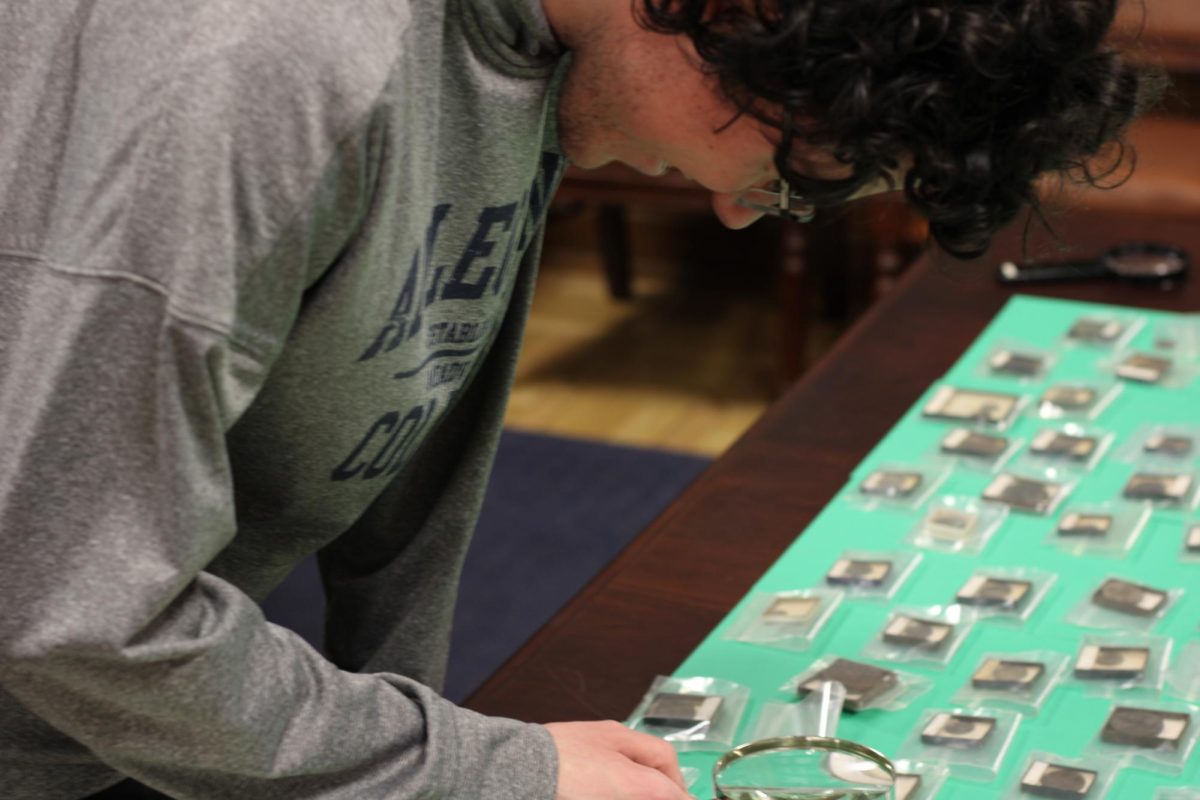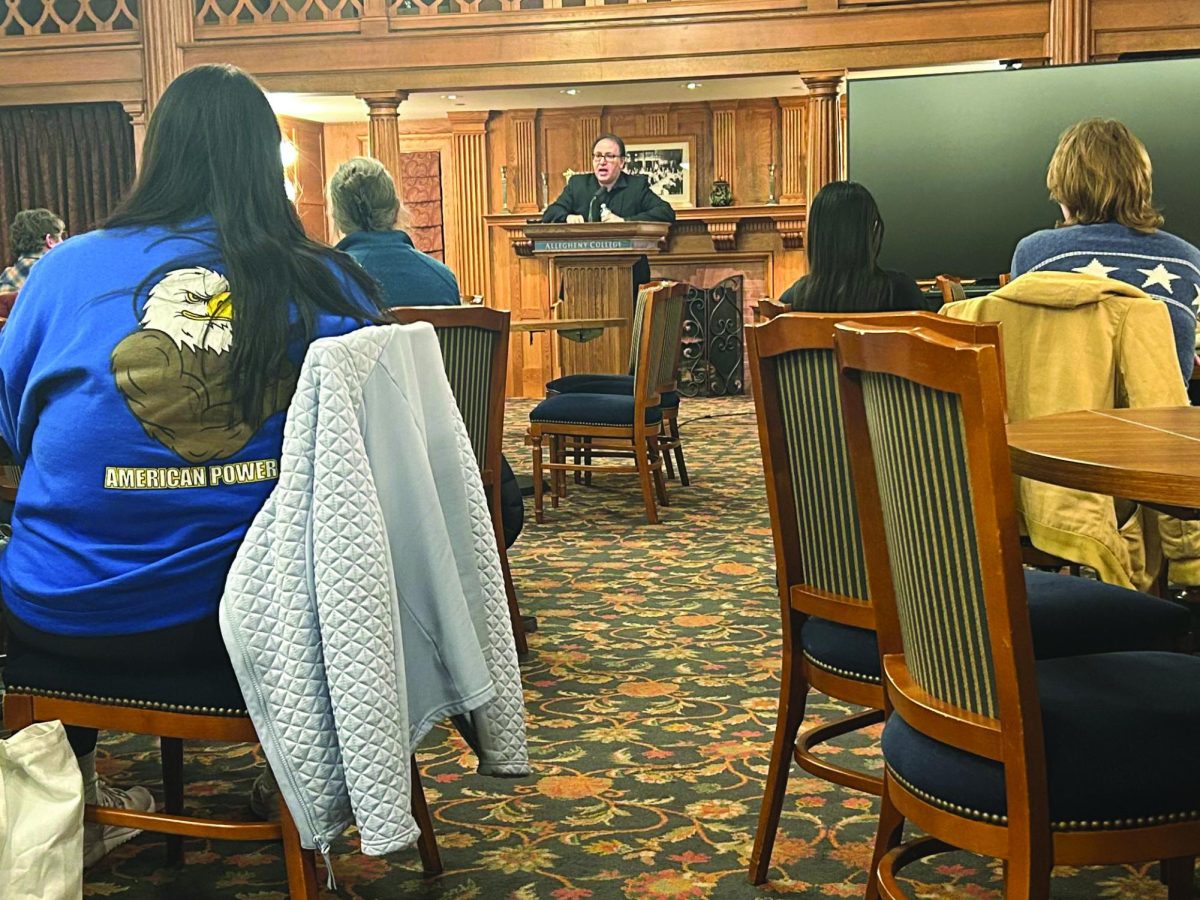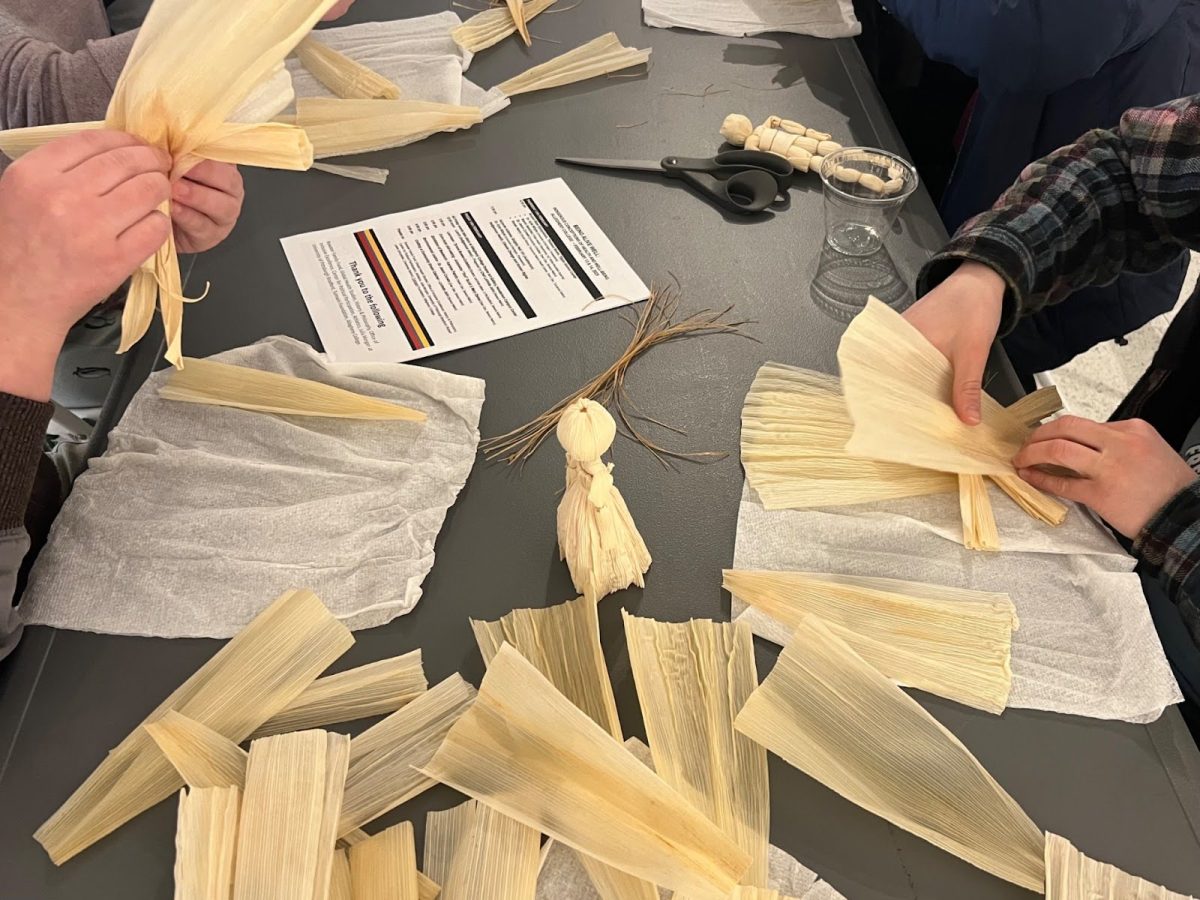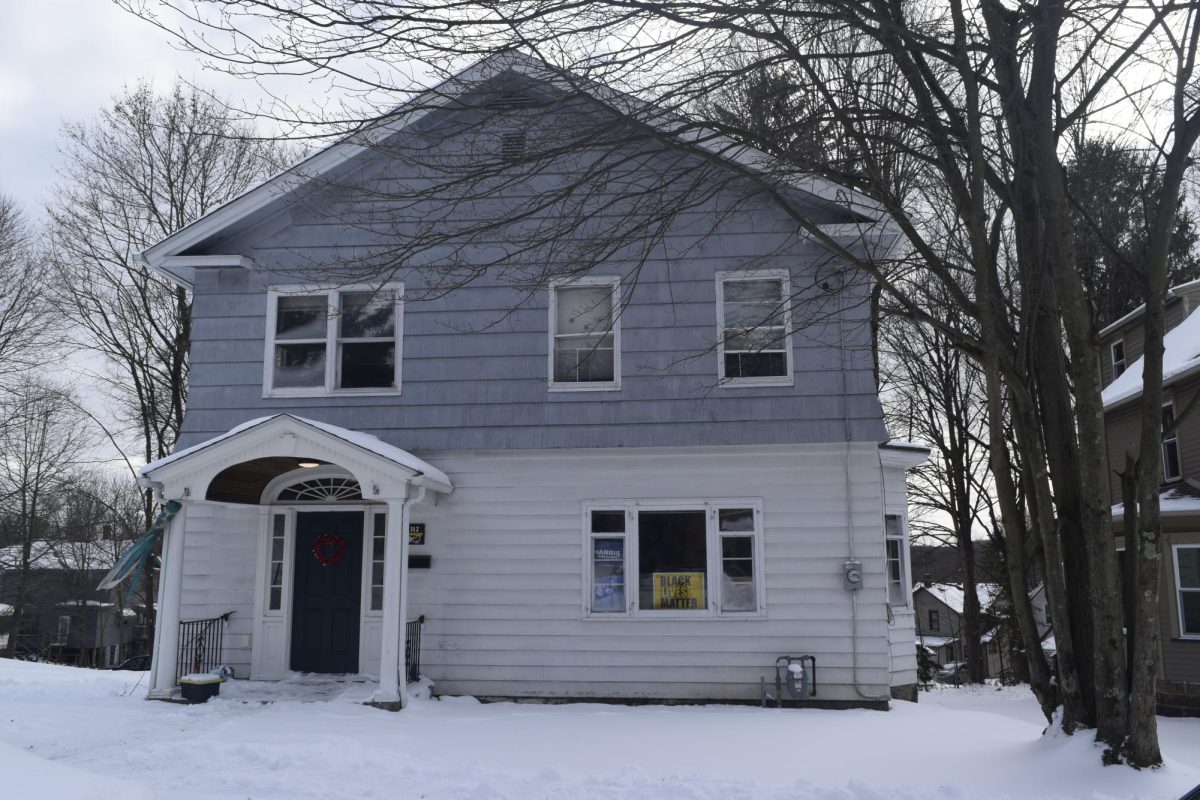The second showings of “All Good Things Must Begin”, directed by Communication, Media and Performance Department Chair Michael Mehler, showcased another eight different plays on Sept. 29 at 6:30 p.m. and Sept. 30 at 2:30 p.m.
In contrast to last week’s chosen plays, this weekend went down a much more serious route by choosing plays more personal to people who have been directly affected by climate change. This selection of plays consisted of: “Wild Parsnips,” “Nachtflug,” “Hurricane,” “Cautionary Solarpunk Archeology,” “The Act About Tomorrow,” “Undertow,” “Kids for Saving Earth Club #121” and “The Polar Bears.”
Although this weekend’s cast was different, several people in this cast performed the previous weekend. Kaleialoha Froning, ’24, Grace Kegel, ’27, alex martin, ’24, Niyah Moore, ’26, Riley Pegher, ’26, and Ashley Swierczewski, ’27, were all a part of this round of plays.
“I really liked watching the first year students flourish a little bit, like, just giving them a little bit of space to kind of just explore and play — or even not just first years but people who haven’t been on the Playshop stage,” said Mehler, when referring to this weekend’s cast.
The first play, “Wild Parsnips” by Tira Palmquist, started the performance off with addressing a very specific kind of person: The know-it-all “environmentalist” that claims to care about the environment, when in reality, knows very little about the planet. Performed by martin, the “environmentalist” attempts to stop a forager from digging up wild parsnips. Performed by Moore, the forager goes on to explain that she is picking an invasive species, and plans to eat it. Throughout the conversation, the “environmentalist” is convinced to try to eat the parsnip, as a “good place to begin” to make sure that public lands continue and thrive.
“Nachtflug” by Nathan Ellis showcases Pegher and Moore telling the story of a sleeping person who is flying over the Indian Ocean. This unnamed character suddenly jolts awake, feeling a deep sense of dread. The pilot speaks into the voice warning system to alert the passengers that “something terrible has happened, something truly awful.” This story ends by stating that “it’s not time to wake up, yet.”
In “Hurricane” by Jaun C. Sanchez, Kegel plays a grade-school teacher who is contemplating how to address the recent hurricane to her students. When she arrives at the school, it is complete chaos, with news reporters and cameras everywhere. One student speaks about their missing brother, and every single student comes forward to hug and comfort them. Spectating this, the teacher begins to wonder: “When did we lose sense of community?”
“The girl who reenacted it portrayed her character beautifully and with such emotion, it was moving,” Swierczewski said. “When that play was performed, the entire audience sat completely still because it was almost as if they were too enthralled within the moving story to move.”
The next play, “Cautionary Solarpunk Archeology” by Vinicus Jatobá, consisted of three parts: “The Act About Yesterday,” “The Act About Now” and “The Act About Tomorrow.” The lines of this excerpt jump quickly between actors, portraying a sense of panic amongst the characters. The first part discusses the past of pollution and the first class’s attempts to move to Mars. The next section speaks of the present moment of panic in response to the climate crisis, including the repetition that “no one will mourn your bones”. Lastly, the play concludes with a kid describing what it was like to see a real bee and taste its honey, which has become nearly impossible in this future reality.
“Undertow” by Keith Barker starts off with two siblings, played by Pegher and Swierczewski, who are standing outside after an argument. They continue to bicker about who is in the right in how they help stop climate change. They finally decide to come to the conclusion that dealing with the climate crisis is not black and white, and that there are many ways to help stop hurting the planet.
Next, “Kids for Saving Earth Club #121” by Gab Reisman involves martin, Swierczewski and Moore playing the same character throughout different periods of her life. Throughout the woman’s lifetime, she shows the dark reality of the declining planet. Despite this, the character realizes that “all I can do is go day by day.”
Similarly to last weekend’s program, this showing of plays also ended with humor. In “The Polar Bears” by Nicolas Billon, two polar bears, played by Kegel and Froning, are seen trying to come up with a solution for their food shortage. These polar bears speak directly to the audience multiple times, with jokes directed specifically towards Allegheny students. As the last play concludes, the two bears decide to start small by writing letters addressing the issue.
Categories:
Climate play series continues with more serious tone
Story continues below advertisement
0
More to Discover






